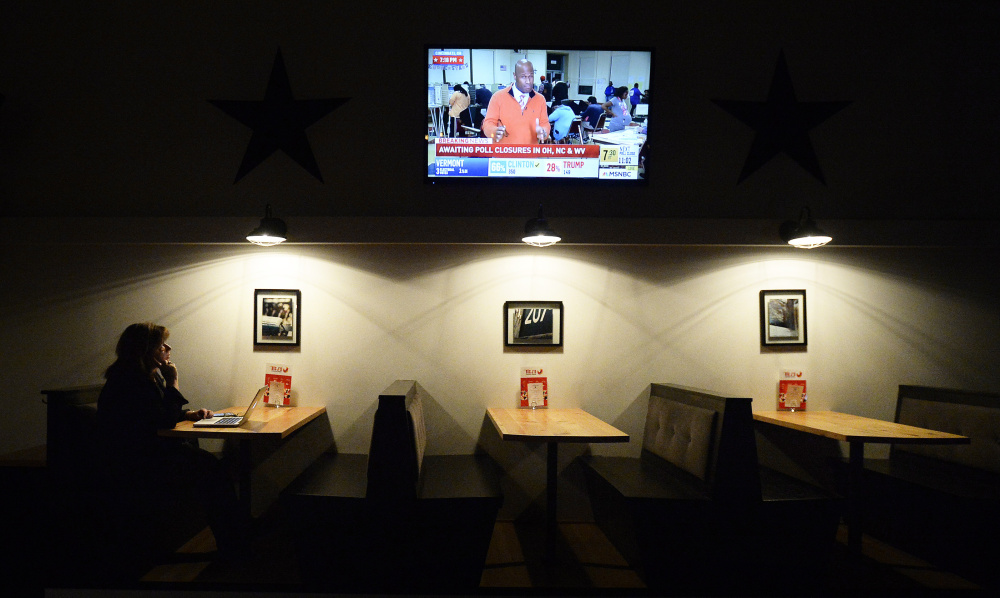A ballot measure that would raise taxes for the wealthiest Mainers to pay for education was still too close to call Wednesday morning.
With 91 percent of precincts reporting by 9 a.m., approval for Question 2 stood at 50 percent, with 50 percent of voters opposed. Approval stood slightly higher, at 346,734 votes so far, with opponents at 340,686.
Question 2 would help the state meet a decade-old voter mandate to cover 55 percent of the cost of K-12 education.
Under Question 2, a 3 percent surcharge would be added for annual household income over $200,000, raising an estimated $123.8 million in income tax revenue in 2017.
The revenue would go into a fund that would be used to reach the 55 percent mandate if the state’s General Fund appropriation fell short. Any money from the fund would have to be used for “direct support,” such as instructors’ salaries, not for administrative purposes.
Under Question 2, the top marginal state income tax rate in Maine would be 10.15 percent, the second-highest in the nation, after California.
Supporters say the measure would help the state comply with its school funding mandate. Critics say it would drive high earners out of the state.
Lois Kilby-Chesley, president of the Maine Education Association, lobbied for passage of both the school funding initiative and for Question 4, a measure to increase the state’s minimum wage. They work together, she said. The ballot initiative to improve school funding will help students in the classroom, and passage of the minimum wage initiative will help students at home.
“We got involved in the minimum-wage issue to be sure the parents of our students earn enough to take care of their kids,” she said.
Two polls commissioned by the Portland Press Herald showed support for the measure overall, although Republican and wealthy respondents did not support it. The most recent poll, conducted by the University of New Hampshire Survey Center from Oct. 20 to Oct. 25, showed that 57 percent of likely voters supported the measure. Among those earning more than $100,000 a year, 52 percent said they opposed Question 2, and among registered Republicans, 63 percent opposed it.
The 3 percent surcharge, which would apply only to state tax on annual household income over $200,000, would be paid almost entirely by the 7,000 households that make up the top 1 percent of earners in Maine, according to the Maine Revenue Services Office of Tax Policy.
That would affect about 16,000 households. In Maine, the top 2 percent earn $225,000 or more a year and pay 30 percent of all income taxes to the state, according to the Department of Administration and Financial Services.
Send questions/comments to the editors.




Success. Please wait for the page to reload. If the page does not reload within 5 seconds, please refresh the page.
Enter your email and password to access comments.
Hi, to comment on stories you must . This profile is in addition to your subscription and website login.
Already have a commenting profile? .
Invalid username/password.
Please check your email to confirm and complete your registration.
Only subscribers are eligible to post comments. Please subscribe or login first for digital access. Here’s why.
Use the form below to reset your password. When you've submitted your account email, we will send an email with a reset code.